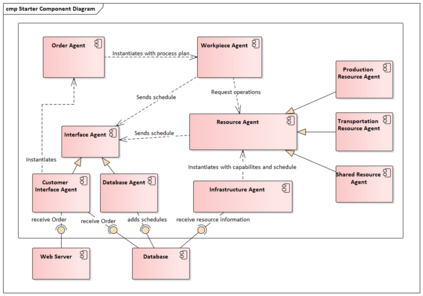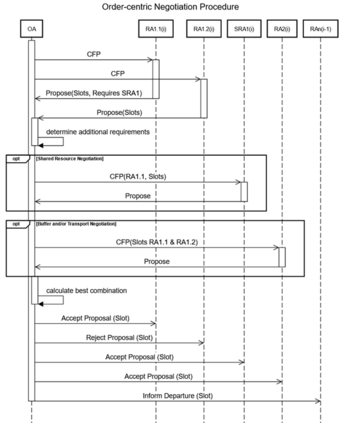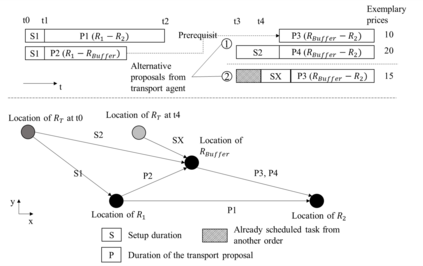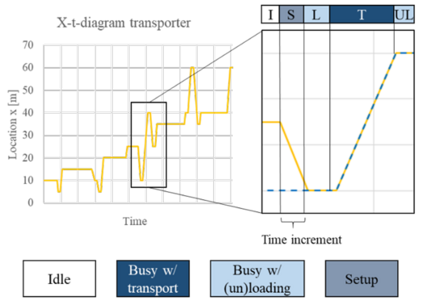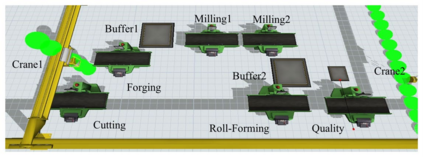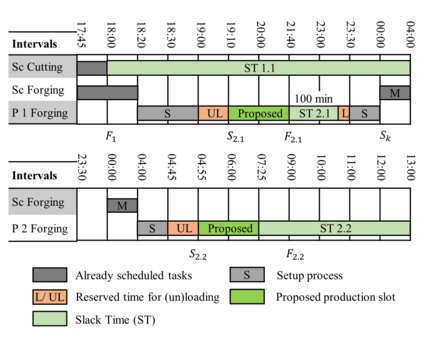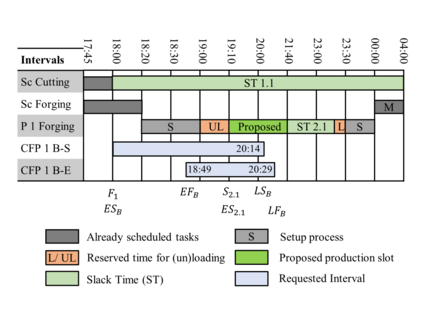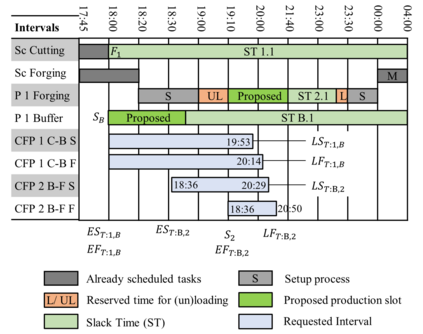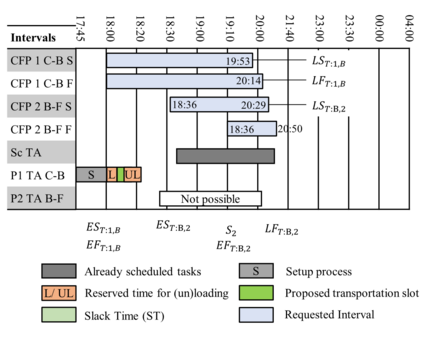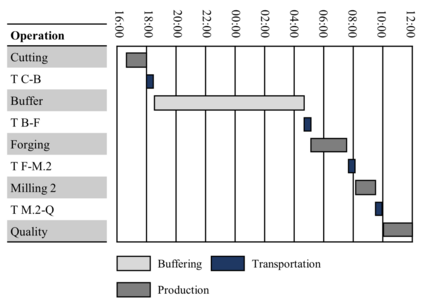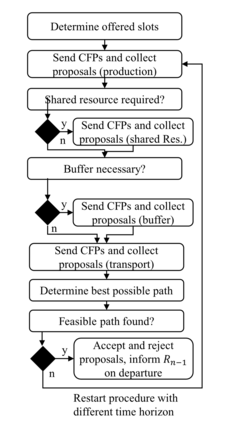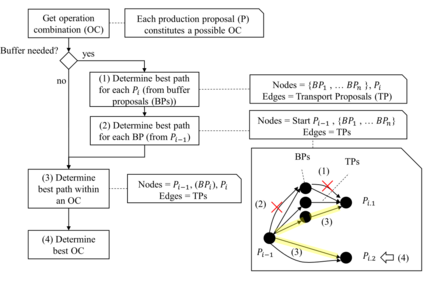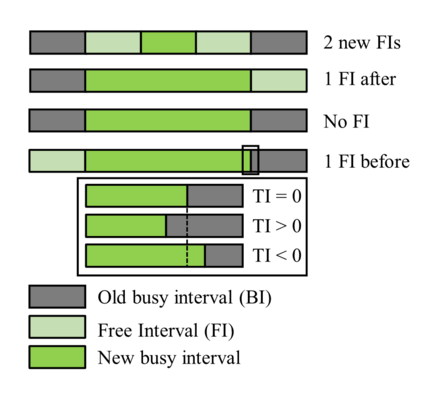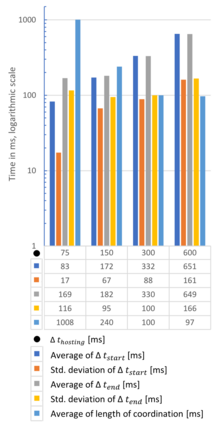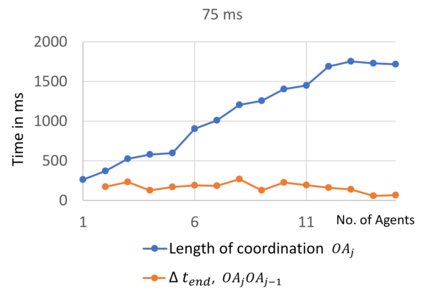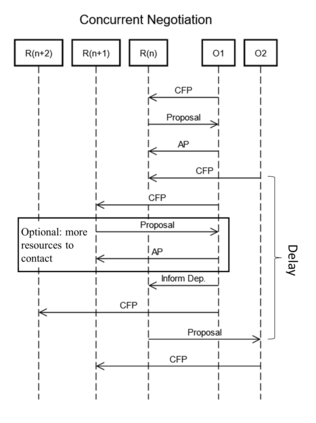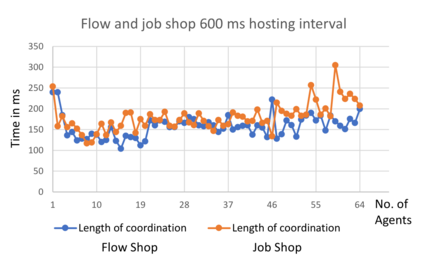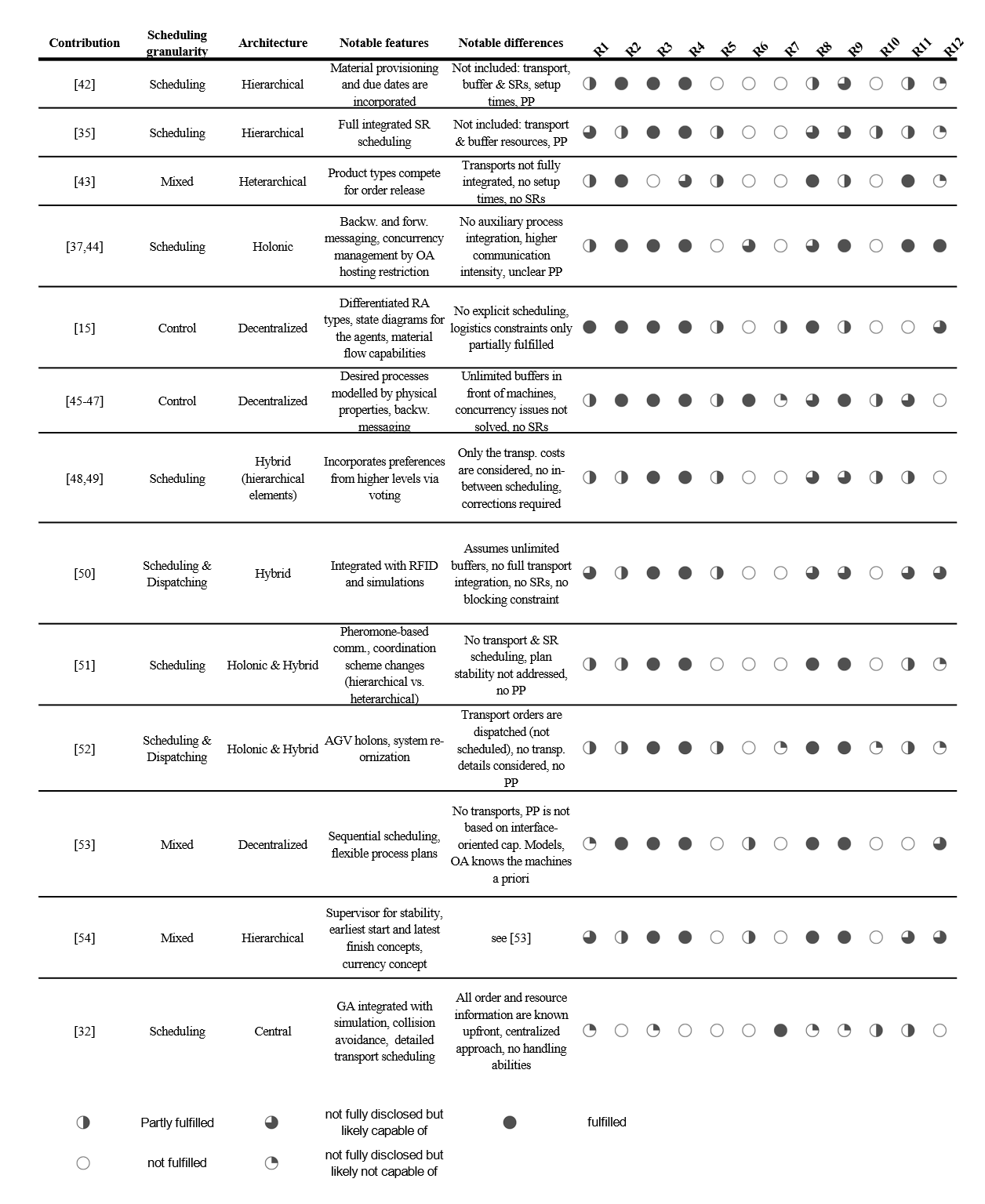Individualized products and shorter product life cycles have driven companies to rethink traditional mass production. New concepts like Industry 4.0 foster the advent of decentralized production control and distribution of information. A promising technology for realizing such scenarios are Multi-agent systems. This contribution analyses the requirements for an agent-based decentralized and integrated scheduling approach. Part of the requirements is to develop a linearly scaling communication architecture, as the communication between the agents is a major driver of the scheduling execution time. The approach schedules production, transportation, buffering and shared resource operations such as tools in an integrated manner to account for interdependencies between them. Part of the logistics requirements reflect constraints for large workpieces such as buffer scarcity. The approach aims at providing a general solution that is also applicable to large system sizes that, for example, can be found in production networks with multiple companies. Further, it is applicable for different kinds of factory organization (flow shop, job shop etc.). The approach is explained using an example based on industrial requirements. Experiments have been conducted to evaluate the scheduling execution time. The results show the approach's linear scaling behavior. Also, analyses of the concurrent negotiation ability are conducted.
翻译:个人化产品和较短的产品寿命周期促使公司重新思考传统的大规模生产。工业4.0等新概念有助于分散生产控制和传播信息的出现。实现这种情景的一个有希望的技术是多剂系统。这一贡献分析了基于代理的分散和综合列表办法的要求。部分要求是发展线性规模通信结构,因为代理商之间的通信是执行时间安排的一个主要驱动因素。方法安排生产、运输、缓冲和共享资源业务,如综合计算其相互依存性的工具等。物流需求的一部分反映了对大型工程体的制约,如缓冲稀缺。该方法旨在提供一个也适用于大型系统规模的一般解决方案,例如,可在与多家公司的生产网络中找到。此外,该方法适用于不同种类的工厂组织(流程商店、工作商店等)。该方法以工业需求为例加以解释。进行了实验,以评价时间安排执行时间。实验显示了该方法的线性缩放行为。此外,还对同时进行的谈判能力进行了分析。


